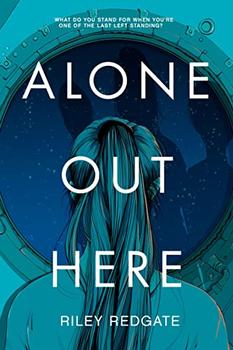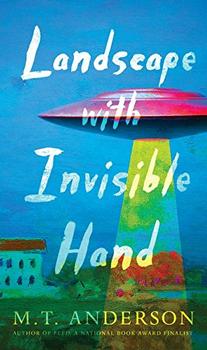Summary | Excerpt | Reviews | Beyond the book | Read-Alikes | Genres & Themes | Author Bio

Miranda's diary opens towards the
end of her sophomore year at a high school in rural
Pennsylvania. The early entries are those of a
typical teenager - family fights, prom dates,
conversations with friends and just a passing
mention of the meteor that's scheduled to hit the
moon. On the night, like the rest of her family and
neighbors, Miranda sets up her lawn chair to watch
the show, and everybody cheers when the impact
happens, but the cheers turn to screams as the moon
starts to tilt.
The impact pushes the moon off its axis into a
closer rotation with the earth causing immediate and
massive tsunamis that wipe out millions. Soon after
worldwide seismic disturbances cause vast
earthquakes and volcanic eruptions. For a few days a
sense of normalcy is maintained in Miranda's
community - the school sends out notices, the
electricity runs intermittently, but before long the
structure of society starts to collapse; panic is
rife. Miranda's family join others ransacking the
local stores for all the supplies they can carry,
and soon a devastatingly cold winter closes in
brought on by volcanic fallout. Miranda, her two
brothers and their mother hunker down to ride it out
in the family home; but conditions go from bad to
worse and the family are soon faced with tough
decisions if they are to survive.
Pfeffer keeps nearly all the death and violence off
stage, instead she focuses on the stresses on
Miranda and her immediate family as they manage the
day-to-day necessities of survival , cutting enough
wood to keep themselves warm and rationing the ever
decreasing supplies of food, while wondering if
there is any point carrying on when they haven't
heard sight nor sound from another human in months.
Miranda's diary entries record her changing
viewpoint as her perspective shifts from
self-centered adolescent angst, through anger and
petulance, to eventual resignation in this
challenging coming-of-age novel that has drawn
comparisons to Meg Rosoff's
How I Live Now and The Diary of Anne
Frank.
![]() This review was originally published in The BookBrowse Review in February 2007, and has been updated for the
June 2008 edition.
Click here to go to this issue.
This review was originally published in The BookBrowse Review in February 2007, and has been updated for the
June 2008 edition.
Click here to go to this issue.

If you liked Life As We Knew It, try these:

by Riley Redgate
Published 2022
The year is 2072. Soon a volcanic eruption will trigger catastrophic devastation, and the only way out is up. While the world's leaders, scientists, and engineers oversee the frantic production of a space fleet meant to save humankind, their children are brought in for a weekend of touring the Lazarus, a high-tech prototype spaceship.

by M.T. Anderson
Published 2019
National Book Award winner M. T. Anderson returns to future Earth in a sharply wrought satire of art and truth in the midst of colonization.
Your guide toexceptional books
BookBrowse seeks out and recommends the best in contemporary fiction and nonfiction—books that not only engage and entertain but also deepen our understanding of ourselves and the world around us.